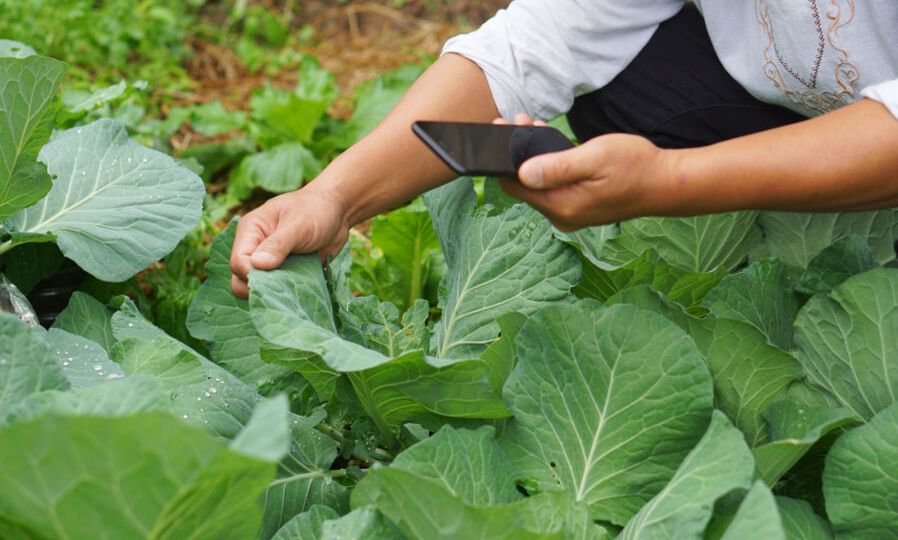
Farm crop management involves a range of practices and techniques to ensure optimal crop growth and yield. By effectively managing crop production, you can optimize yield and quality, minimize costs and waste, and provide a sustainable and profitable farm operation.
The Issue with Farm Crop Management
Farmers face a variety of problems when managing their crops, which can impact crop productivity, quality, and profitability. Here are some common problems that you may encounter:
- Climate and Weather: Climate and weather can have a significant impact on crop growth and yield. Drought, flooding, extreme temperatures, and other weather events can damage crops, reduce yields, and increase the risk of disease and pests.
- Pest and Disease Management: Pests and diseases can cause significant damage to crops, resulting in reduced yields and lower quality. Managing pests and diseases can be challenging, as they can quickly spread and become resistant to pesticides and other control methods.
- Soil Health: Soil health is critical for crop growth and yield. Poor soil quality, nutrient deficiencies, and soil erosion can lead to reduced yields, lower quality, and increased costs.
- Labor Shortages: Many farmers face labor shortages, which can make it challenging to manage crops efficiently. Finding and retaining skilled labor can be difficult, especially during peak seasons.
- Market Prices: You may also face challenges related to market prices. Fluctuating prices, oversupply, and changing demand can impact the profitability of crops and create uncertainty.
- Technology Adoption: Adopting new technologies can be expensive and time-consuming, making it hard to keep up with the latest advances in crop management technology.
These challenges can be difficult to overcome, but with careful planning and effective management strategies, you can minimize your impact on crop productivity and profitability.
Using Technology to Improve Farm Crop Management
There are several ways in which technology can be used to improve farm crop management. Here are some examples:
- Precision Agriculture: Precision agriculture involves the use of various technologies, such as GPS, drones, and sensors, to create a detailed map of the farm. This helps you to understand the variation in soil types, moisture levels, and crop growth within their fields. With this information, you can apply fertilizers and pesticides more precisely, reducing waste and increasing crop yields.
- Farm Management Software: There are several software tools available that can help you manage your crops more efficiently. These tools can help you keep track of planting and harvesting schedules, monitor soil and weather conditions, and track yields and profitability.
- Automated Irrigation: Automated irrigation systems can help you optimize water usage and reduce waste. These systems use sensors to measure soil moisture levels and adjust irrigation accordingly. They can also be set up to water crops during specific times of the day when evaporation rates are lowest.
- Crop Monitoring: Technologies like satellite imagery, drones, and sensors can help you monitor crop growth and health. With this information, you can identify issues like pest infestations or nutrient deficiencies and take corrective action before significant damage is done.
- Crop Genetics: Advances in genetics and biotechnology have led to the development of crop varieties that are more resistant to pests and diseases, require less water, and have higher yields. You can improve crop management and increase productivity by adopting these new crop varieties.
Overall, technology has the potential to improve farm crop management significantly. By adopting these technologies, you can reduce waste, increase yields, and improve profitability.
The Power of Farm Management Software
Farm management software can provide several benefits to you in managing your crops more efficiently. Here are some of the ways farm management software can help:
- Planning and Record Keeping: Farm management software can help you plan your planting and harvesting schedules, track yields, and record important data like soil test results, fertilizer applications, and pest management practices. This information can help you make data-driven decisions about crop management and track progress over time.
- Resource Management: Farm management software can help you optimize the use of resources like water, fertilizer, and labor. By analyzing data on crop growth, soil quality, and weather conditions, you can make informed decisions about how to allocate resources to achieve the best results.
- Financial Management: Farm management software can help you track expenses, manage budgets, and analyze profitability. By tracking expenses like equipment and labor costs, you can identify areas where you can reduce costs and increase profits.
- Communication and Collaboration: Farm management software can facilitate communication and collaboration between you and your teams, suppliers, and advisors. This can help ensure that everyone works together towards the same goals and improve coordination and efficiency.
- Compliance and Certification: Farm management software can help you comply with regulations and achieve certification for things like organic or sustainable farming practices. By providing documentation and data on crop management practices, you can demonstrate compliance and track progress toward certification goals.
Overall, farm management software like AgSquared can help farmers make more informed decisions about crop management, optimize the use of resources, and improve productivity and profitability. Contact us today to learn more about how AgSquared’s technology can help improve farm crop management for your farming business.

